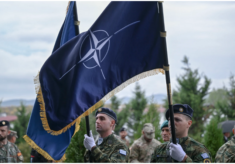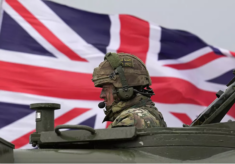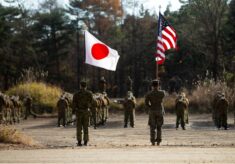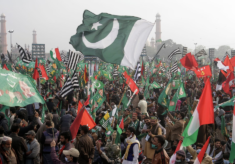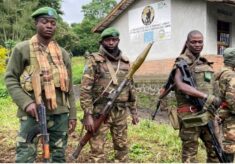As a reaction to the sixth and most powerful North Korean nuclear explosion, to date, the UN Security Council unanimously adopted, on September 11, resolution 2375, the toughest of all sanctionary UN resolutions towards the DPRK so far. Even Russia and China, the traditional protectors of DPRK, voted in favor of these heavy sanctions. The tension in the Peninsula has now reached a level comparable to peaks such as 1950 pre- Korean war period and the nuclear crisis of 1994 which brought the region on the verge of a military confrontation.
The present tension is aggravated by the unpredictability of the leaders of the two major contending parties and their unwillingness to consider a negotiated solution. In addition, and unlike previous crises, the DPRK has now tested nuclear weapons and developed missiles allegedly capable of delivering such weapons.
In spite of the overwhelming military superiority of the US and its allies (South Korea and Japan) and the fact that the DPRK nuclear threat is devoid of any political and military credibility, the risk that a confrontation may reach a nuclear dimension cannot be excluded. The North Korean leader is playing an unprecedented game of poker with an added nuclear card, a situation never faced by his dynastic predecessors.
Also unlike his predecessors, President Trump seems inclined to follow the dangerous path set by the North Korean young leader and so risks getting trapped in his own rhetoric. By threatening “fire and fury like the world has never seen” he has lowered US standards to those of the DPRK. By defining “appeasement” the efforts made by the South Korean president Moon Jae-in, he jeopardized the chances of an inter-korean dialogue and furthermore eroded the credibility of a longstanding ally of the United States. Even one of the President’s staunchest aides, the former White House Chief Strategist Steven Bannon, publicly expressed his skepticism about such an approach.
Are the two interlocutors capable of handling these high stakes?
So far, the response of the international community to the DPRK provocations has been either sanctionary (altogether 18 UNSC resolutions condemning Pyongyang and establishing sanctions) or military (joint military exercises, increased nuclear naval and air presence, deployment of additional missile defense devices). Nothing significant has yet happened on the diplomatic front. It is an illusion on Trump’s part to think that Beijing might activate itself to pursue his agenda. Both the Chinese and the Russians have their own agenda in the region.
In times of high tension, it takes more “guts” for a responsible leader to show restraint then to flex his muscles. The use of force under the UN Charter can only be contemplated once all other options have been exhausted. Rather than continuing on the path of verbal escalation it is time to consider concrete diplomatic options.
-A withdrawal of the controversial US deployment of the Terminal High Altitude Defense THAAD could become a bargaining chip within a wider package leading to a denuclearization of the Korean Peninsula. This would be attractive to both Russia and China. The deployment and successive withdrawal of intermediate range nuclear forces(INF) in Europe in exchange for a total elimination of such weapons is an interesting precedent.
-A peace treaty among the former belligerents of the Korean war after almost sixty years is long overdue and would be a logical step to be pursued.
-At the peak of the 1994 crisis President Clinton asked former President Carter to fly to Pyongyang and negotiate what became a successful deal establishing a “modus vivendi” in the Peninsula which lasted for a decade. Nothing similar has taken place so far.
The tension has reached such a level that a diplomatic initiative is imperative. Since the South Korean efforts have been frustrated , it should be up to the US to take the initiative. Appointing an eminent and internationally respected US envoy to try and defuse the tension should be seriously considered. Should this not happen a third party must intervene as a facilitator. The experience acquired by the EU during the past decades in dealing with Korea both South and North, its role as counterpart to Iran in the successful JCPOA negotiation, are appropriate credentials to undertake a such a vital task.
Carlo Trezza – former Ambassador of Italy to Korea and Permanent Representative for Disarmament and non Proliferation in Geneva. Chairman of the Missile Technology Central Regime. Chairman of UN Secretary General Advisory Board on Disarmament

